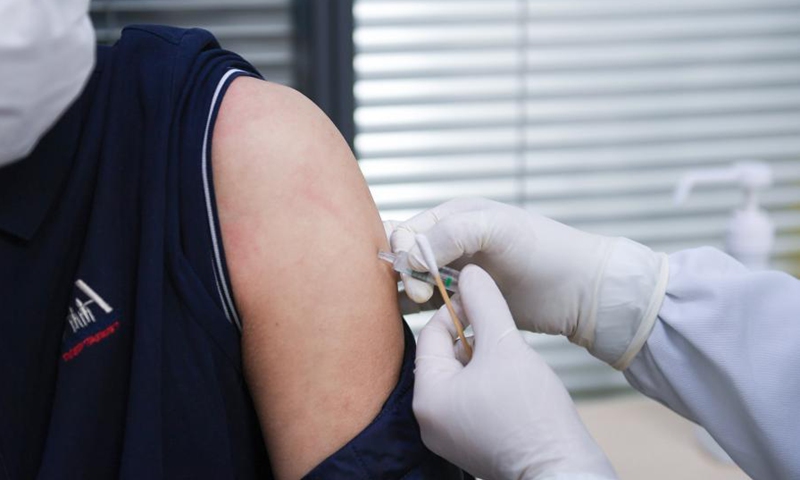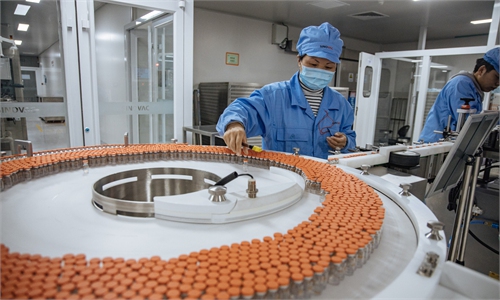Unloading of COVID19 vaccines to be controlled within 90 minutes: official guideline

A nurse administers the second dose of COVID-19 vaccine to a driver of the Shenzhen Bus Group Co., Ltd. at the health service center of the Xiameilin community in Futian District, Shenzhen, south China's Guangdong Province, Jan. 24, 2021. The Shenzhen Bus Group Co., Ltd. encourages its employees to receive COVID-19 vaccines. (Xinhua/Mao Siqian)
The unloading of coronavirus vaccine should be completed within 1.5 hours or 90 minutes, according to official coronavirus vaccine transport guidelines.
The Ministry of Transport, the National Health Commission, the General Administration of Customs and the National Medical Products Administration have issued a road transportation guidelines for coronavirus vaccine products on Tuesday which clarified the requirements on the delivery, transport, personal and refrigerated vehicles for the COVID-19 vaccine transport.
It stressed that the temperature of the unloading area should be monitored and controlled within a specific range. The unloading process should be completed within the agreed time and lasts less than 1.5 hours.
The driver should contact the receiving party one hour before the expected arrival time of the vehicle, inform the expected arrival time, confirm whether the vaccine cargo has been received, and connect the consignor in case of any abnormality.
Road transport of the vaccine should be equipped with more than two professional and technical personnel with medicine, pharmacy and microbiology background to oversee the quality management and delivery as well as two drivers to drive in turns for less than 4 hours each.
During transportation, the temperature data of refrigerated vehicles, refrigerators or incubators should be monitored and recorded in real time.
According to the guidelines, the accuracy of automatic temperature monitoring equipment for refrigerated vehicles should be within ± 0.5 C. Refrigerated vehicles should be disinfected regularly to avoid the spread of coronavirus through cold chain transportation.

